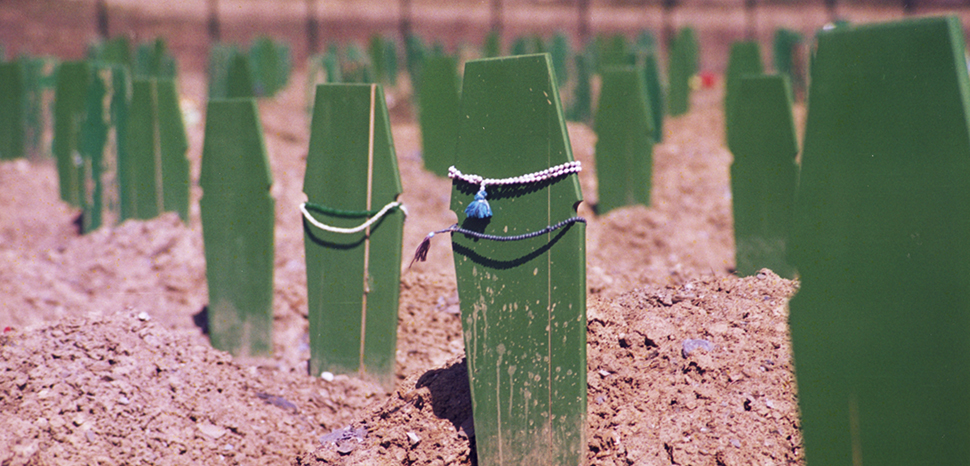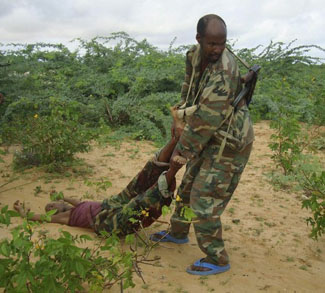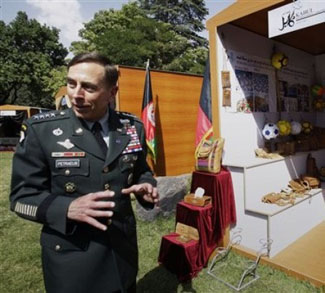July 11 commemorates the Srebrenica genocide.
In 1993, one year into the Bosnian War, the United Nations declared “safe areas” in the Muslim enclaves of Republika Srpska to protect Bosniak refugees fleeing from the violence. Security Council Resolution 819 designated the city of Srebrenica in eastern Bosnia as a “safe area.” Security Council Resolution 824 did the same for the cities of Sarajevo, Bihac, Tuzla, and Gorazde.
600 Dutch soldiers were entrusted with protecting the “safe area” at Srebrenica. Located at Potočari, roughly 5 miles away from the city, more than 20, 000 Bosniaks sought refuge at the U.N. base. While several thousand refugees, including at least 300 men, were initially granted protection by the Dutch soldiers, thousands more were denied entry. Some remained in the camps outside the U.N. base, others hid in nearby fields and factories, trekked to the Bosniak-controlled city of Tuzla, or fled into the mountains and forests in the countryside.
Ratko Mladic, the Butcher of Bosnia, entered Srebrenica on July 11, 1995. Lightly armed, lacking air support, and overrun by the Serb Army, the Dutch soldiers at the U.N. base in Potočari surrendered their weapons in exchange for their lives. They also handed the defenseless Bosniak boys and men they were “protecting” inside the base over to Mladic’s forces. Separated from their mothers, grandmothers, aunts and sisters, the Serb Army executed 8,372 unarmed boys and men over the next week. This amounted to the biggest civilian massacre in Europe since World War 2.
The Dutch-led U.N. Mission in Bosnia was a total failure. In 2002, the Dutch government resigned after a 5 year-long investigation found the government of the Netherlands responsible for the tragedy. 12 years later, a Hague district court in the Netherlands found the Dutch government liable for the deaths of the men and boys at Srebrenica. The Hague Appeals Court and the Supreme Court of the Netherlands both upheld that decision. In 2022, the Dutch government finally apologized to Bosniak families whose defenseless relatives were executed at Srebrenica.
In 2007, the International Court of Justice determined that the Serb Army committed genocide at Srebrenica. After 16 years of hiding, principally in Serbia, Ratko Mladic was eventually caught, tried, and convicted of two counts of genocide, five counts of crimes against humanity, and four counts of violations of the laws and customs of war by the International Criminal Tribunal for the Former Yugoslavia.
Despite overwhelming evidence, including 9914 exhibits admitted and 169 witnesses testifying on behalf of the prosecution at trial, the Serbian and Russian governments deny the crimes against humanity perpetrated by the Serb Army in Bosnia. In 2015, Russia also vetoed a Security Council Resolution that sought to commemorate the Bosnian genocide. To say genocide denial undermines reconciliation in the western Balkans and impedes both Serbia’s and Bosnia’s integration into the Euro-Atlantic community is an understatement.
Genocide denial dehumanizes the dead by denying them their dignity for a second, third, and fourth time. It also makes reconciliation between the perpetrators and the descendants of their victims impossible. To Milorad Dodik, the President of Republika Srpska, the Srebrenica genocide is “a fabricated myth” and “the greatest deception of the 20th century.” To Hatidža Mehmedović, the Srebrenica genocide was where her loving husband Abdullah, her innocent sons Azmir and Almir, and her defenseless brothers Edhem and Hamed were executed by the Serb Army. There are thousands of mothers, grandmothers, sisters and aunts with similar heartbreaking stories.
Genocide denial distorts history by spreading disinformation and spewing hatred that serves as a building block for future policy. There is no shortage of states who are guilty of this. Russia repudiates the Holodomor as the genocide of Ukrainians. Turkey doesn’t recognize the genocide of the Ottoman Empire’s Christian minorities. Iran denies the Holocaust ever happened. While the list goes on and on, genocide denial also helps war criminals like Bashar al-Assad and Vladimir Putin evade justice indefinitely despite overwhelming evidence of their crimes against humanity.
For international law to replace war and accountability to prevail over impunity, truth must first triumph over lies. A more just and humane world is contingent on all of this.
The views expressed in this article belong to the authors alone and do not necessarily reflect those of Geopoliticalmonitor.com.
George Monastiriakos is a Fellow at the Geneva Centre for Security Policy and a lawyer licensing candidate who holds degrees in common law, civil law, and political science and history. You can read his published works on his website. He can be reached on Twitter @monastiriakos or by email [email protected].




